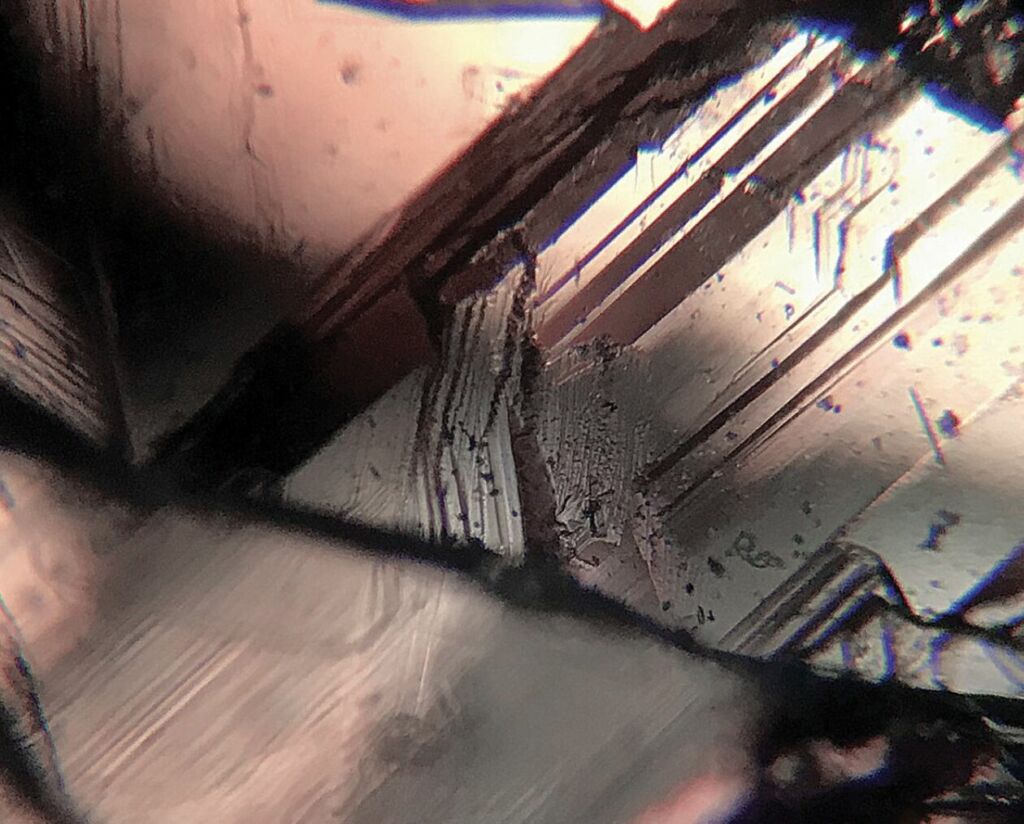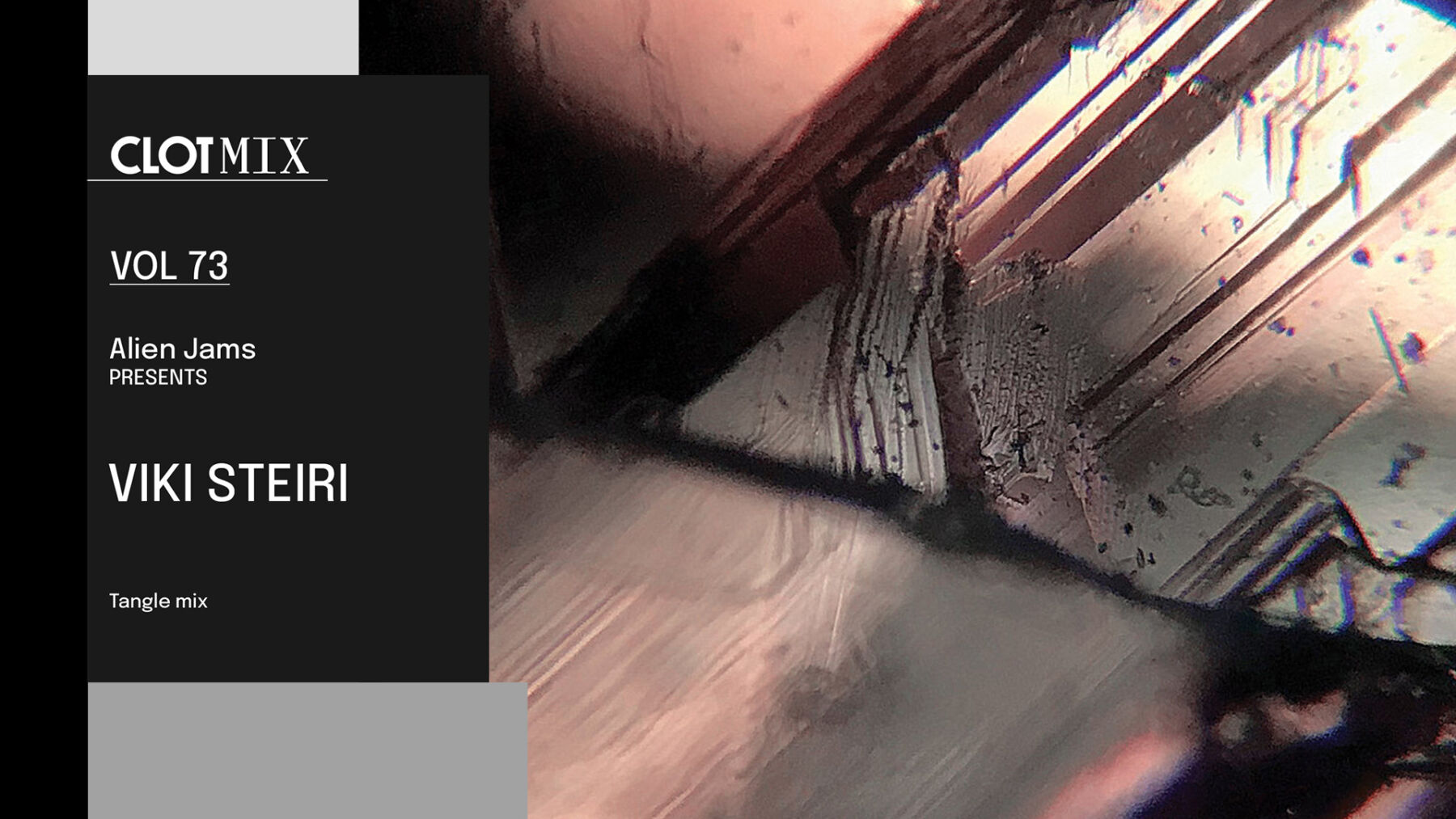Text by CLOT Magazine

The next mixtape is by Greek/UK-based artist Viki Steiri, who has recently released her debut album on our beloved Alien Jams. The mix is a recollection of sounds that inspired her for the album production.
Balm is a powerful album anchored by ritualistic, monolithic cello layers. Steiri combines eerie soundscapes with electronic dance rhythms, synth-tinged folk songs from Istanbul, and reworked cello and santur improvisations.
The album encapsulates a hauntingly poignant journey through melancholic soundscapes. Recorded intermittently between Athens and London over six years from 2017 to 2023, the collection of tracks serves as a deeply personal documentation of the artist’s experiences and emotions. Steiri’s compositions for this album navigate themes of rootlessness, loss, and identity changes, reflecting the tumultuous nature of existence. However, amidst all, there is a profound exploration of humanness, delving into the realms of imagination and introspection.
Steiri mentions she had a lot of fun putting this mixtape together, and while preparing it, it made her realize what her inspirations for the album had been: I hadn’t given it too much thought before. This is music that has informed the album, either directly or indirectly, plus a couple of my own tracks. There’s no particular cohesion, but to me, these are all musicians who have transcended conditioning, and I feel their music is very free and individual.
With this mixtape selection as well as through her music, Steiri uncovers moments of beauty and intensity while offering listeners a transformative and immersive sonic experience.
In your recently published debut album, Balm (Alien Jams, 2024), you created a series of deep, intense and melancholic soundscapes with what is mentioned, distinctly personal documentation. Could you share what your creative process was like for the album production?
I had been a serial collaborator before, making music for visual artists and playing improv with Ectopia. Still, I have wanted to find my own sound for a long time, combining cello, synths, electronics, and beats in a non-genre mix. I had no idea what that sound would be and hadn’t made beats before. That took about three years οn and off to develop, involving a steep learning curve.
In 2020 I was stranded in Athens due to the pandemic. Tom Hirst (Design a Wave) had asked me to make music for an online archive he was curating. The only equipment I had was my laptop and the cello. I had a 15-minute slot and 3 unrelated ideas. I merged them in a surreal way, mixing elements of one into the other. I used the laptop keyboard to record synths and beats and the built-in mic to record the cello. That was the first version of ‘I want you too…/Pause/axRI’ and it was kind of a ‘proof of concept’, that I could combine disparate ideas in a way that made sense to me.
The tracks are collages of improvisation, samples, beats, and unused material from older projects. Then, I process and weave layers in Ableton in a detailed, meticulous composition to death. Procession is 14 cello channels, and Balm is a remix of a live improvisation. axRI is a cover of a Turkish song in 9/8, a common dance rhythm in Greece and Turkey. I wanted to see if it would still groove as a club track.
I work slowly. I leave the tracks for a while to see if I’ll still like them later, and then I rework and rework.
In the album, a particular sadness -even disconcerting and mysterious elements- is felt (which the cello and santur drive so elegantly); does it relate to the experience of rootlessness, loss and changes of identity that you also mention?
By rootlessness, I mean both literally (living between two countries) and in terms of music (not belonging to a genre), and I felt very comfortable with both for most of my life. In the period coinciding with the album’s production, rootlessness took a new meaning of heaviness because of personal, painful experiences and significant changes (illness, loss, changing countries after 16 years). This created a need to find a ‘centre’ and refuge, a new balance. The album was one of the means to do that.
I think a lot of the beauty in music comes from negative space (silences or a musical idea taking as much time as it needs without rushing) and changes, contrasts, and unexpected elements. I often use long forms because I have more space to play with them.
I was always drawn to heavy and dark music, but yes, the circumstances in which I started the album were quite special. There was grief (my dad’s passing a week before the lockdown) and fear about the pandemic, but there was also a big release of love, connection and protective instinct for my loved ones. I felt a strange calmness that comes when you remember briefly through periods like this (and then, unfortunately, forget again) which things are important. You stop worrying about the things you usually worry about. At that time, I started needing beauty: it was spring, and I happened to watch some films that I became quite obsessed with. I needed some sort of escape, and art and beauty brought back inspiration, energy and eroticism to my life. I wanted to transform all this mix of feelings into music, beautiful, intense, dark or light.
What were you exploring on the more technical side of the album? Did you try any new equipment or techniques for these productions?
I was much more confident playing or improvising on the cello and keyboard as I am classically trained than on the production side of things. I had used DAWs to make ambient tracks but with quite limited understanding. This was my first time using Ableton more extensively, shaping sounds and making beats, so I made mistakes and took a long time. I had to delete all the beats and bass sections of axRI and ‘Brink’ and start from scratch with better sounds. I now know what not to do in the future, such as giving sounds their own space in the mix during composition, not during mixing. I’d like to sound more slick on future projects.
The cello is a central instrument in your practice and this album. What was your main attraction to this particular instrument initially? What does it bring to the album’s more contemporary or improvisational compositions? And how was the interplay with the santur, which you also use in the album?
I didn’t really choose the cello. I already played the piano and wanted to learn the guitar. Still, my music school needed more cellists and offered free lessons, tricking me by telling me it would help me learn guitar (which is what I really wanted, and I ended up teaching myself later). I really got into the cello when I started playing in a youth orchestra.
Later, when I studied composition, I came to appreciate the cello’s versatility, especially with amplification, which opens up huge sonic possibilities (to the point that I struggle to play acoustically now). I can switch instantly from notes to extended techniques to lots of noise without having to interrupt my flow. I love using synths, but I can’t do that so easily. I’ve been playing the cello for so long that it feels very natural. At the same time, it’s just a medium, just like the other sounds I use. I’ve written music for other instruments and haven’t used any cello on Brink and Pause on the album.
The santur is played by Dario Papavassiliou, who plays several Middle Eastern instruments. Of the many combinations we experimented with, the percussive sound of santur complemented the sustained sound of the cello particularly well, and the microtonal scale it is tuned to gives a subtle nod to the music I grew up with.
What are your main inspirations for your artistic practice these days?
Researching how other musicians/producers I like make their music. My Athens and London experimental musician and artist friends. Festivals like Unsound, CTM and Nyege Nyege – even when I can’t go, I still check the featured artists and listen to their work. Films, books, Hallyu. Emptying myself through meditation.
What is your relationship with technology and analogue for your productions nowadays? How do you cope with technology (screen/digital) overload?
There’s a part of it that I really enjoy. Getting in the zone when I edit on Ableton for hours, forgetting to eat or do anything else, is such a satisfying state to be in. I had to overcome a bad relationship with technology, and whenever I am learning something techy I still have a gut feeling of fear, but then I just do it and it’s fine.
Regarding technology overload, I’m trying to own my attention so that I can live with agency. It’s so easy for big tech to own our attention. I’m addicted like everyone else, so sometimes it’s easier, sometimes harder. With social media it’s better, as I don’t use it much apart from messaging people. Series are my guilty pleasure, I can’t control that very well.
We must be among the strangest people in history. We live outside community and we are weirdly fragmented from our bodies, overthinking and living through screens. It makes us feel unbalanced. So I try to think through my body and hang out with friends. It’s impossible to think my way out of thinking, so I need my body to give me perspective of my mind.






